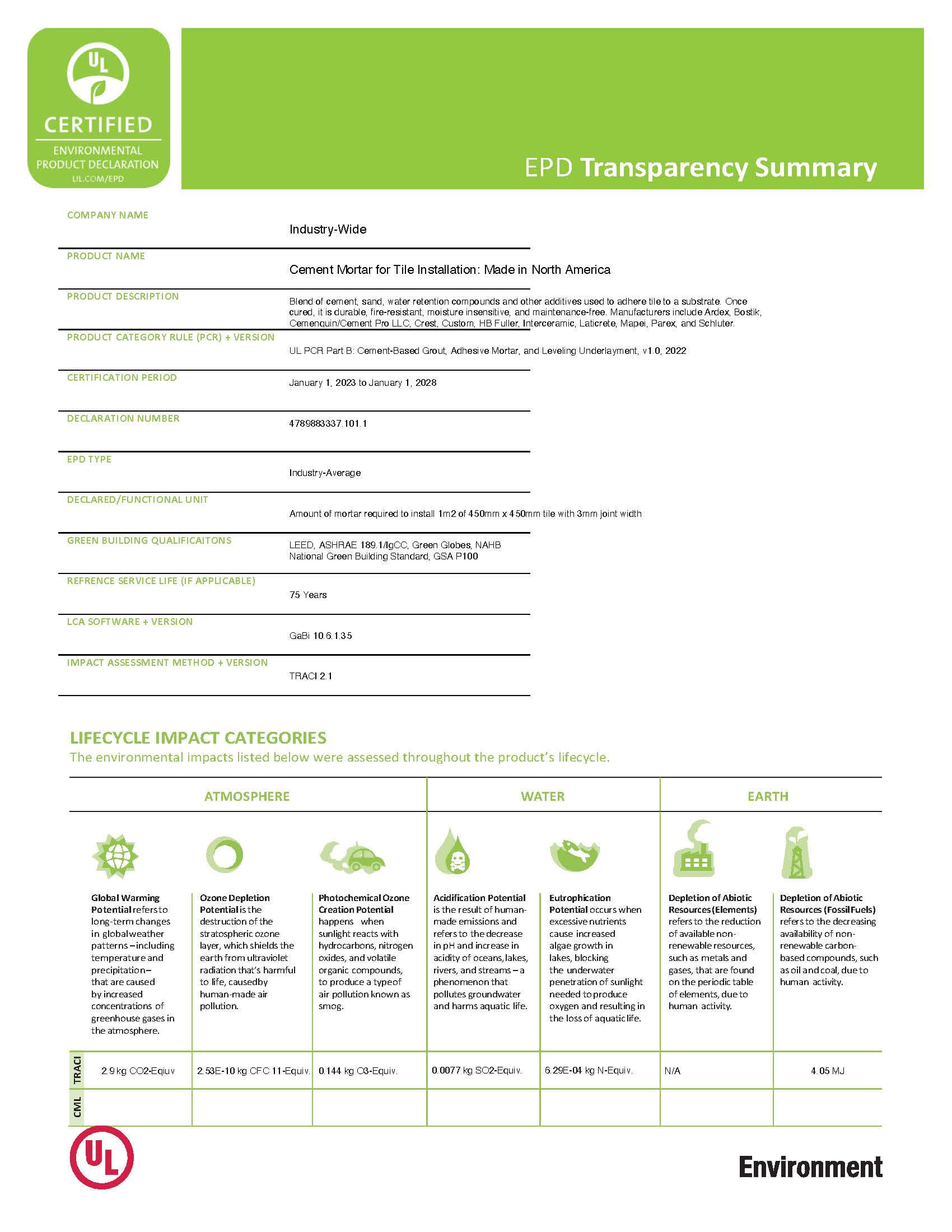Cement mortar is a blend of cement, sand, water retention compounds, and other bonding additives used to adhere tile to a surface. Once cured, it is moisture insensitive, fire-resistant, and maintenance-free. UL has issued this transparency summary for a certified environmental product declaration (EPD) about cement mortar for tile installation.
The transparency summary document below includes a short two-page overview of the different types of cement mortar products, the definition of mortar and its categories, followed by the lifecycle impact, material content, and additional environmental information.
The lifecycle impact categories in this summary cover the environmental impacts of cement mortar on the atmosphere, water and earth. This includes mortar’s potential for global warming, ozone depletion, photochemical ozone creation, acidification, eutrophication, and depletion of abiotic resources (elements and fossil fuels).
Tile and cement mortar are usable for a variety of post-life recycling applications such as roadway paving, clean fill, and aggregate for new products. However, the transparency summary above has a conservative approach and the analysis is based on the assumption that 100% of the tile and associated waste are disposed of in a landfill and not recycled.

